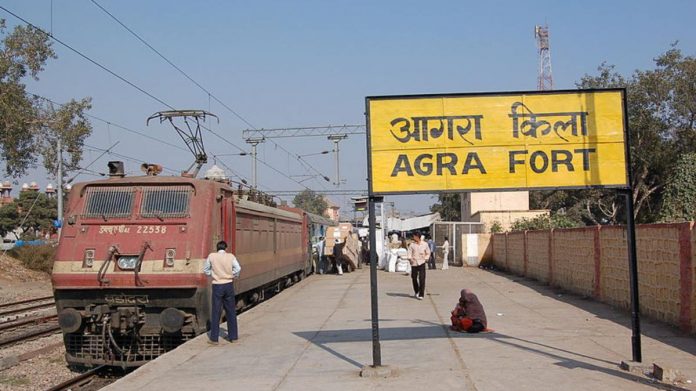
An Uttar Pradesh department has set in motion an exercise to examine if this city was known by any other name in ancient times, triggering speculation that the Yogi Adityanath government is planning to rename Agra. Ironically it is the ‘Bahujan’ University faculty that is being ‘used’’ for the purpose. Agra’s Bhim Rao Ambedkar University has now constituted a committee to go into the issue, following a letter from the local administration, Vice-Chancellor Arvind Dixit told PTI on Monday.
According to him, some Agra residents posted a demand to rename Agra on the state government’s Stamp and Registration Department website. This was then referred to Agra administration, which in turn approached the university.
India Today reported that in state capital Lucknow, there was no official confirmation on any move to rename the City of Taj. However, in the recent past, Allahabad has been renamed Prayagraj and Faizabad district is now called Ayodhya. Ambedkar university’s History department head Sugam Anand said a panel will examine the issue.
“A committee has been formed comprising local research scholars, research students and myself. The committee’s work will be to delve into the archival and documented records in history to see if Agra ever had an ancient name,” he told PTI.
He said informal discussions are being held with experts to start gathering information. He also invited participation from the public if they had any evidence on any ancient name for Agra.
Anand said there have been a lot of stories about ancient Agra going by some other name, but “no documented evidence is available yet”. On Agra’s ancient history, he said a hoard of coins with the name ‘Guhilshri’ or `Shriguhil’ inscribed on them was found in 1863.
Agra Fort is said to stand on a site traditionally known as Badalgarh.
History according to Wikipedia
Agra (listen)) is a city on the banks of the Yamuna river in the Indian state of Uttar Pradesh(UP) UP has come under the hardline BJP since March 2017. Agra is 206 kilometres (128 mi) south of the national capital New Delhi. Agra is the fourth-most populous city in Uttar Pradesh and 24th in India. Agra is a major tourist destination because of its many Mughal-era buildings, most notably the Taj Mahal, Agra Fort and Fatehpur Sikri, all of which are UNESCO World Heritage Sites. Agra is included on the Golden Triangle tourist circuit, along with Delhi and Jaipur; and the Uttar Pradesh Heritage Arc, a tourist circuit of Uttar Pradesh, along with Lucknow and Varanasi. Agra is in the Braj cultural region.
The history of Agra before the Delhi Sultanate is unclear. A 17th century chronicle called it an old settlement which was merely a village, owing to its destruction by Mahmud of Ghazni, before Sikandar made it his capital. The 11th-century Persian poet Mas’ūd Sa’d Salmān writes of an assault on the fortress of Agra, then held by King Jaypal, by Sultan Mahmud of Ghazni. Despite his surrender, Mahmud sacked the place.[11] It was mentioned for the first time in 1080 AD when a Ghaznavide force captured it. Sultan Sikandar Lodī (1488–1517) was the first to move his capital from Delhi to Agra in 1504, its administration having previously been under Bayana. He governed the country from here and Agra assumed the importance of the second capital. He died in 1517 and his son, Ibrāhīm Lodī, remained in power there for nine more years. Several palaces, wells, and a mosque were built by him in the fort during his period. He was finally defeated at the Battle of Panipat in 1526.[14] Between 1540 and 1556, Afghans, beginning with Sher Shah Suri, ruled the area. It was the capital of the Mughal Empire from 1556 to 1648. The city was later taken by the Marathas and later still fell to the British Raj.